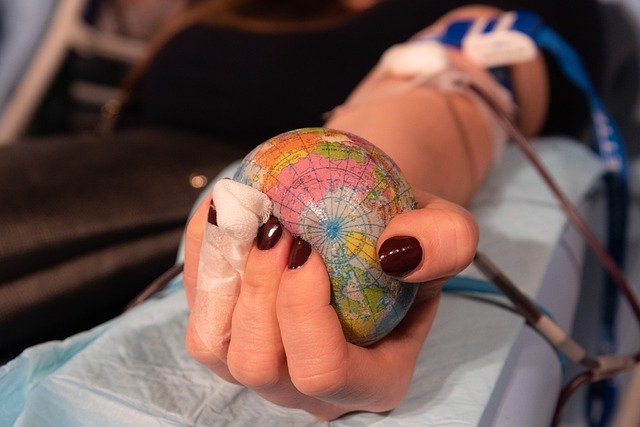How to Idenitfy and Gently Treat Psoriasis
Genital psoriasis is a common yet often misunderstood condition that affects sensitive areas of the body. It is a form of psoriasis, an autoimmune disease that causes skin cells to multiply too quickly, leading to the formation of scaly, inflamed patches. While psoriasis typically affects areas such as the elbows, knees, and scalp, it can also occur in the genital region, which can be especially uncomfortable and distressing. In this article, we will explore the signs and symptoms of genital psoriasis, effective treatment options, and tips for managing flare-ups.

What is Genital Psoriasis?
Genital psoriasis is a specific manifestation of psoriasis that affects the sensitive skin of the genital region. Unlike typical psoriasis that appears on elbows, knees, or scalp, genital psoriasis has some distinctive characteristics. It occurs in the folds and creases of the genital area, including the pubis, upper thighs, buttocks, and genitalia itself. This form affects approximately 63% of people with psoriasis at some point during their condition, though many patients hesitate to discuss these symptoms with their healthcare providers due to embarrassment.
The genital region’s moist, warm environment creates different conditions for psoriasis compared to other body areas. In genital areas, psoriasis typically appears smoother, redder, and less scaly than in other locations. The sensitive nature of genital skin also means symptoms can be particularly uncomfortable, with increased burning, sensitivity, and irritation compared to psoriasis elsewhere on the body.
How to Identify Genital Psoriasis
Recognizing genital psoriasis can be challenging as its appearance differs from typical psoriasis presentations. Here are key characteristics to help identify genital psoriasis:
In genital regions, look for:
-
Bright red, smooth patches (rather than thick, scaly plaques)
-
Well-defined borders separating affected skin from healthy skin
-
Intense itching, burning, or stinging sensations
-
Increased skin sensitivity and irritation
-
Cracking or bleeding in severe cases
-
Discomfort during sexual activity or urination
It’s important to note that genital psoriasis can be confused with other conditions such as fungal infections, contact dermatitis, or sexually transmitted infections. This is why proper diagnosis by a dermatologist or healthcare provider is essential. Typically, diagnosis involves a physical examination and medical history review, and occasionally a small skin sample might be taken for analysis to rule out other conditions.
Common Triggers and Factors That Worsen Genital Psoriasis
Understanding what triggers or exacerbates genital psoriasis is crucial for effective management. Several factors can cause flare-ups or worsen existing symptoms:
Friction and trauma to the skin, often caused by tight clothing, sexual activity, or vigorous cleansing, can trigger what’s known as the Koebner phenomenon—where psoriasis develops at sites of skin injury. Stress is another significant trigger, with many patients reporting flare-ups during periods of high tension or anxiety. Environmental factors such as cold, dry weather can exacerbate symptoms, while certain medications like lithium, beta-blockers, and antimalarials may trigger or worsen psoriasis in some individuals.
Personal hygiene practices also play a crucial role. Harsh soaps, fragranced products, and aggressive scrubbing can irritate sensitive genital skin and worsen symptoms. Similarly, hormonal changes, particularly in women during menstruation or menopause, can influence psoriasis activity in genital areas.
Effective Ways to Treat Genital Psoriasis
Treating genital psoriasis requires a delicate approach due to the sensitivity of the affected skin. Several effective treatment options are available:
Topical treatments specifically formulated for sensitive areas are the first-line approach. Low-potency corticosteroids are often prescribed for short-term use to reduce inflammation and relieve symptoms. However, long-term use should be avoided as they can cause skin thinning. Non-steroidal alternatives like tacrolimus ointment or pimecrolimus cream (calcineurin inhibitors) are effective options that don’t cause skin atrophy and are safer for prolonged use on genital skin.
For moderate to severe cases, phototherapy using narrowband UVB light may be recommended, though the genital area is typically shielded during treatment. In particularly persistent or severe cases, systemic medications that work throughout the body might be prescribed. These include oral medications like methotrexate, cyclosporine, or apremilast, or biologic drugs that target specific components of the immune system involved in psoriasis.
Gentle Self-Care Strategies for Managing Genital Psoriasis
Beyond medical treatments, self-care practices can significantly improve comfort and reduce flare-ups. The genital area requires particular attention and gentle handling. In the United States, patients have access to various specialized products and comprehensive care options through both private dermatology practices and specialized psoriasis treatment centers.
When bathing, use lukewarm water instead of hot water, which can worsen irritation. Choose gentle, fragrance-free cleansers specifically formulated for sensitive skin. After bathing, pat the area dry gently rather than rubbing, and apply any prescribed medications to slightly damp skin for better absorption. Regularly moisturize with fragrance-free, hypoallergenic products to maintain skin barrier function and reduce irritation.
Wear loose-fitting, breathable cotton underwear and avoid tight clothing that can cause friction. During flare-ups, consider using cotton barriers between opposing skin surfaces to reduce irritation from skin-to-skin contact. For sexual activity, use appropriate lubrication to minimize friction and consider discussing with healthcare providers about temporary adjustments during severe flares.
Psychological Impact and When to Seek Professional Help
The psychological impact of genital psoriasis shouldn’t be underestimated. Many patients experience reduced quality of life, sexual dysfunction, and relationship difficulties due to physical discomfort and emotional distress. In the United States, mental health support through specialized psychodermatology services is increasingly available in major medical centers.
It’s advisable to seek professional help when:
-
You suspect you have genital psoriasis but haven’t been diagnosed
-
Your symptoms aren’t improving with current treatments
-
You experience severe pain, bleeding, or signs of infection
-
The condition significantly impacts your quality of life, relationships, or mental health
-
You’re planning pregnancy or are pregnant (as some treatments aren’t suitable during pregnancy)
Remember that dermatologists and urologists specializing in genital skin conditions can provide tailored advice and treatment plans. Many healthcare providers now offer telehealth options for initial consultations, which might be more comfortable for discussing sensitive symptoms.
This article is for informational purposes only and should not be considered medical advice. Please consult a qualified healthcare professional for personalized guidance and treatment.




